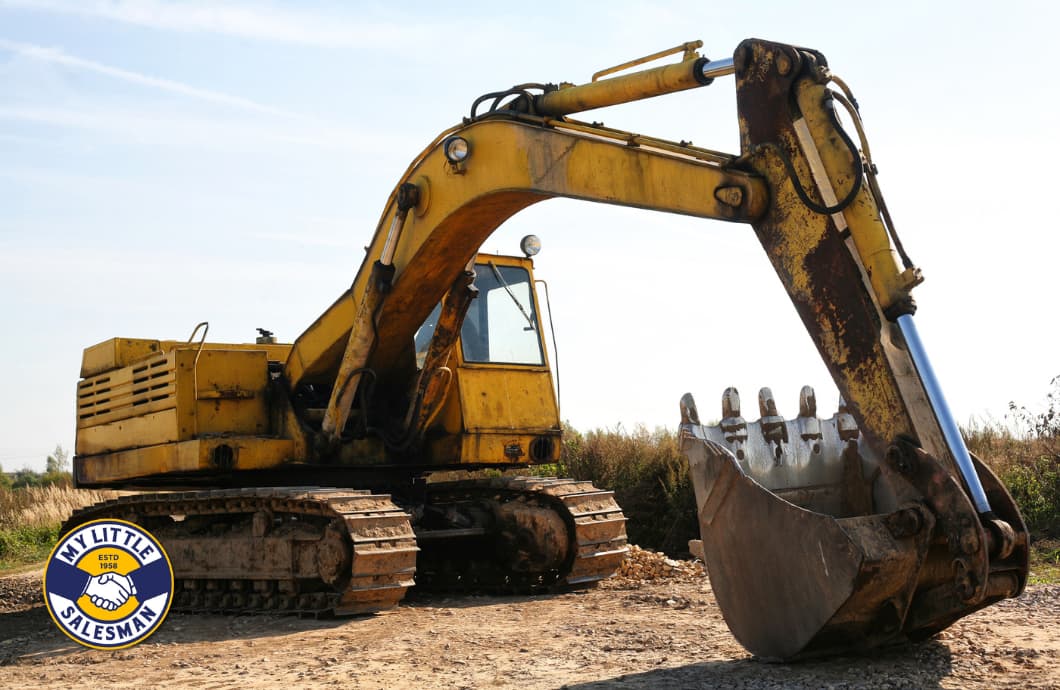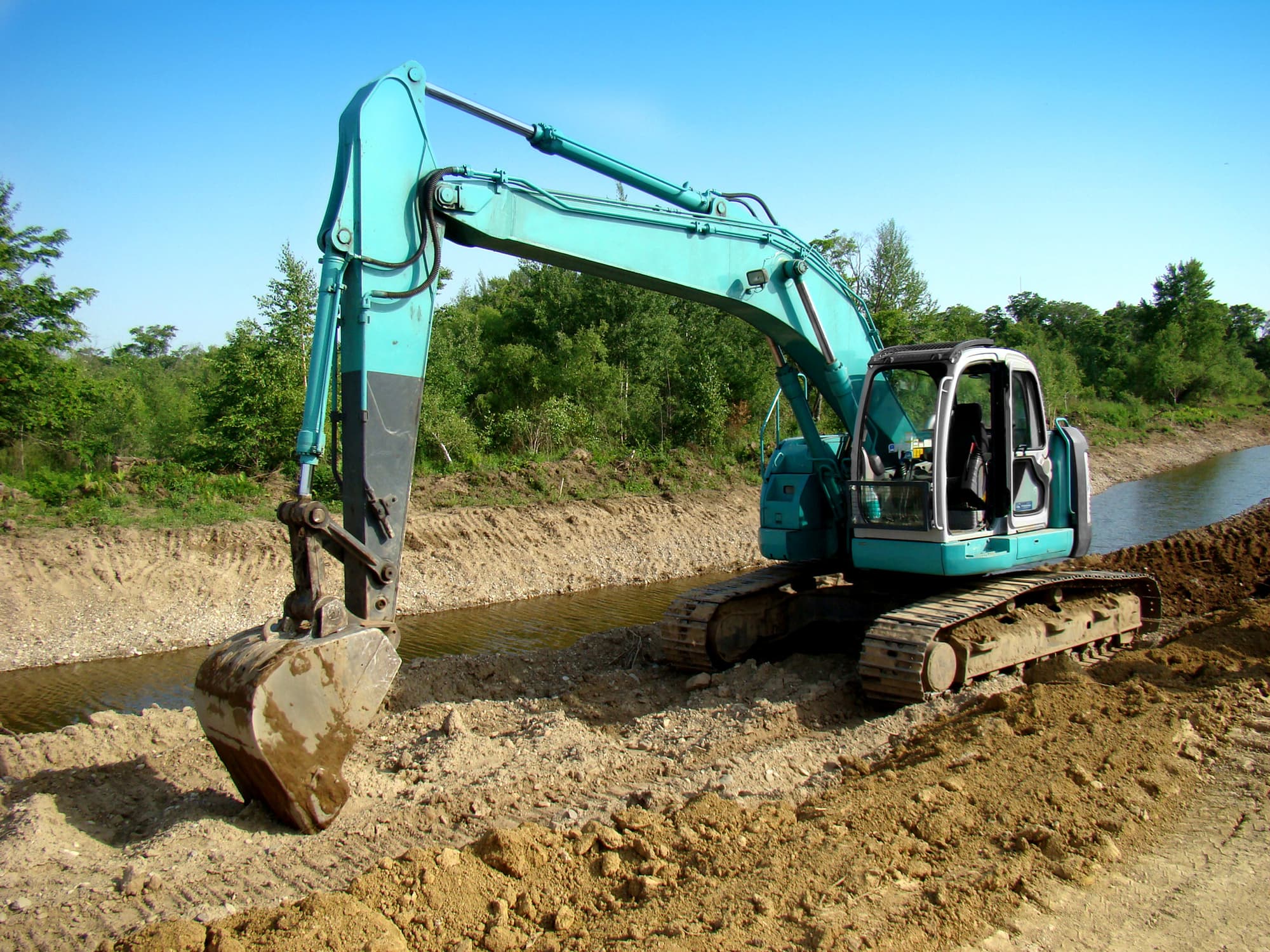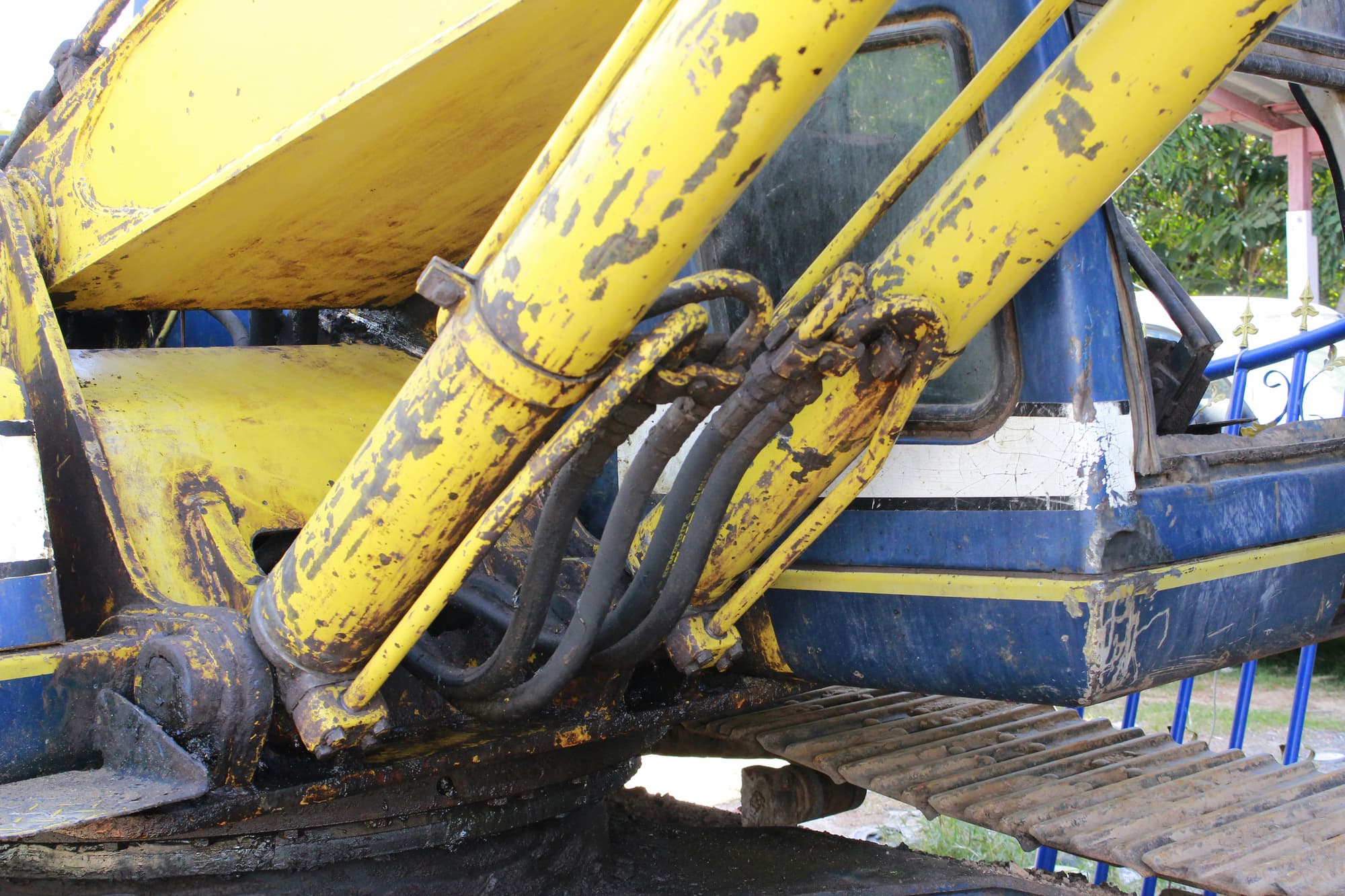
Imagine unearthing the perfect used excavator at a steal—a rugged workhorse ready to tackle your project.
But wait, there's a catch—a smattering of rust across its metallic muscles. Ouch.
Is this a hidden mechanical gremlin or just surface-level wear that may scare off uninformed buyers? Well, that all depends.
In this short guide, we aim to help you discern cosmetic blemishes from mechanical dealbreakers in used construction equipment—empowering you to score the ideal machine.
Article Contents
Think of cosmetic damage as the aesthetic imperfections of used construction equipment that have little to no impact on its functionality. It's the equivalent of a scratch on a car—unsightly, but not compromising its driving ability.
Rust, chipped paint, faded decals, and minor dents often fall under this category. It's a workhorse after all!

While surface rust might be a cosmetic concern, deeper corrosion can signal trouble. Extensive rust eating away at metal components weakens their structural integrity, potentially leading to fractures and construction equipment failure.
Where the rust exists and how deep it appears can be the difference between cosmetic imperfection and potential mechanical failure. Make sure that there is no deep or major rust around welds, bolts, and critical support structures. This rust can weaken structures, causing them to fail when under load.
.jpg)
Rust isn't the only villain. Be wary of:
- Fluid leaks: Any leaks, be it oil, coolant, or hydraulic fluid, indicate potential internal issues requiring repair.
- Unusual noises or vibrations: Grinding, clunking, or excessive shaking during operation points toward worn-out parts or misalignment.
- Difficulty in operation: Sluggish performance, erratic controls, or malfunctioning features suggest deeper mechanical problems.

Don't underestimate the power of a close inspection. Scrutinize the equipment for signs of mechanical wear, leaks, and damage beyond surface-level blemishes—asking questions of the seller about the equipment's use, how it was stored, maintained, and the like.
This article does not replace a mechanic's inspection.
This article is not meant to provide the depth of knowledge needed to give an item of used construction equipment the green light—rather it is meant to help you remove various candidate pieces of equipment from consideration before enlisting the help of an experienced construction equipment repair professional.
Always seek the assistance of a qualified mechanic for a professional assessment on any item of used construction equipment you're considering buying. Even if this inspection costs a few hundred dollars, it can save you significant repair costs down the line.
While cosmetic issues might not always hinder functionality, they can still affect resale value. So, negotiate accordingly! Heck, knowing what cosmetic damage won't hurt functionality may help you score some sweet deals! However, prioritize addressing any underlying mechanical problems to ensure the used construction equipment's safety, performance, and longevity.
Ready to Find Your Next Workhorse?
Now that you're armed with the knowledge to differentiate cosmetic quirks from mechanical woes, you're invited to find your next item of used construction equipment for sale with help from your friends at My Little Salesman. Since 1958, My Little Salesman has been connecting buyers and sellers of heavy equipment, commercial trucks, and a variety of parts and equipment needed to get the job done. With a wide selection and valuable insights, you're sure to find the perfect equipment that matches your needs and budget. Remember, a keen eye and a focus on functionality will lead you to your ideal piece of heavy equipment.
Find your next item of quality used construction equipment for sale now.